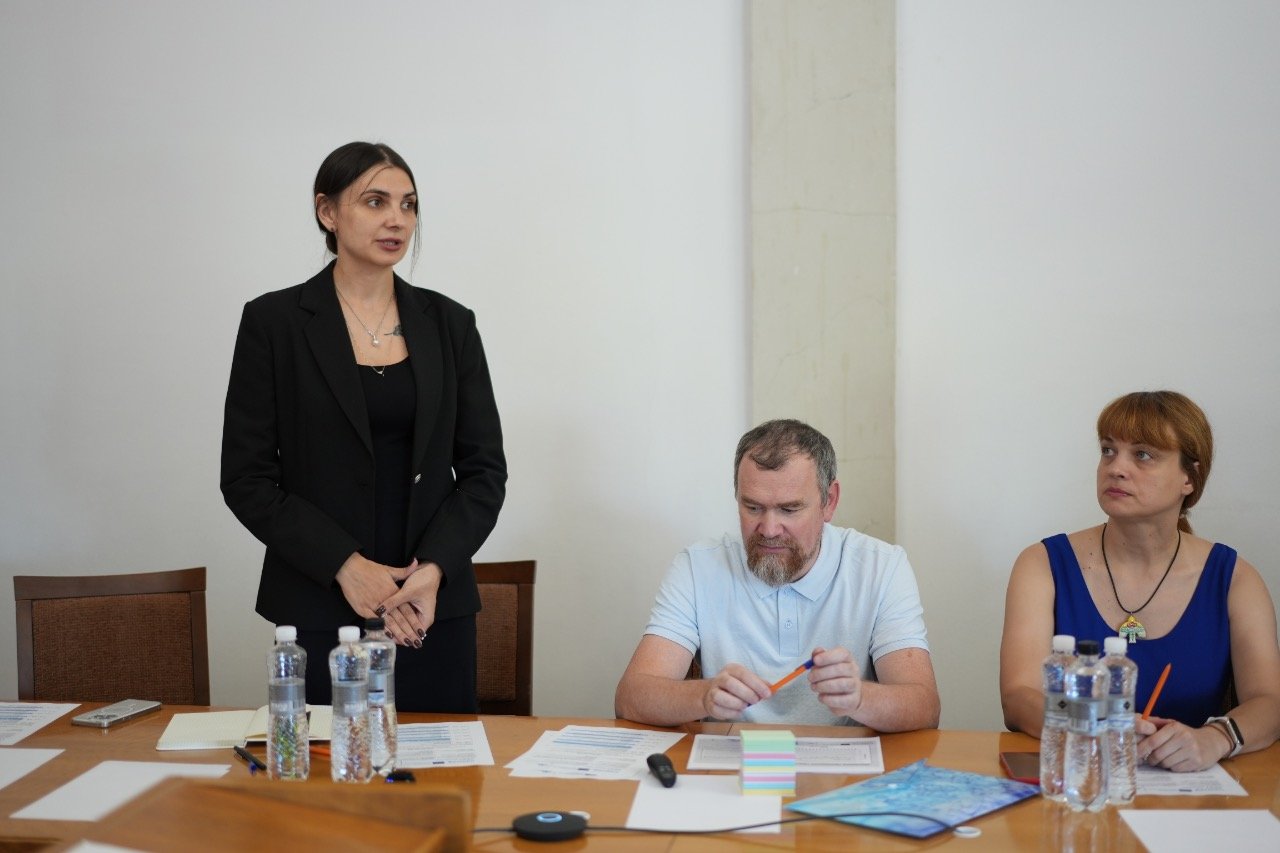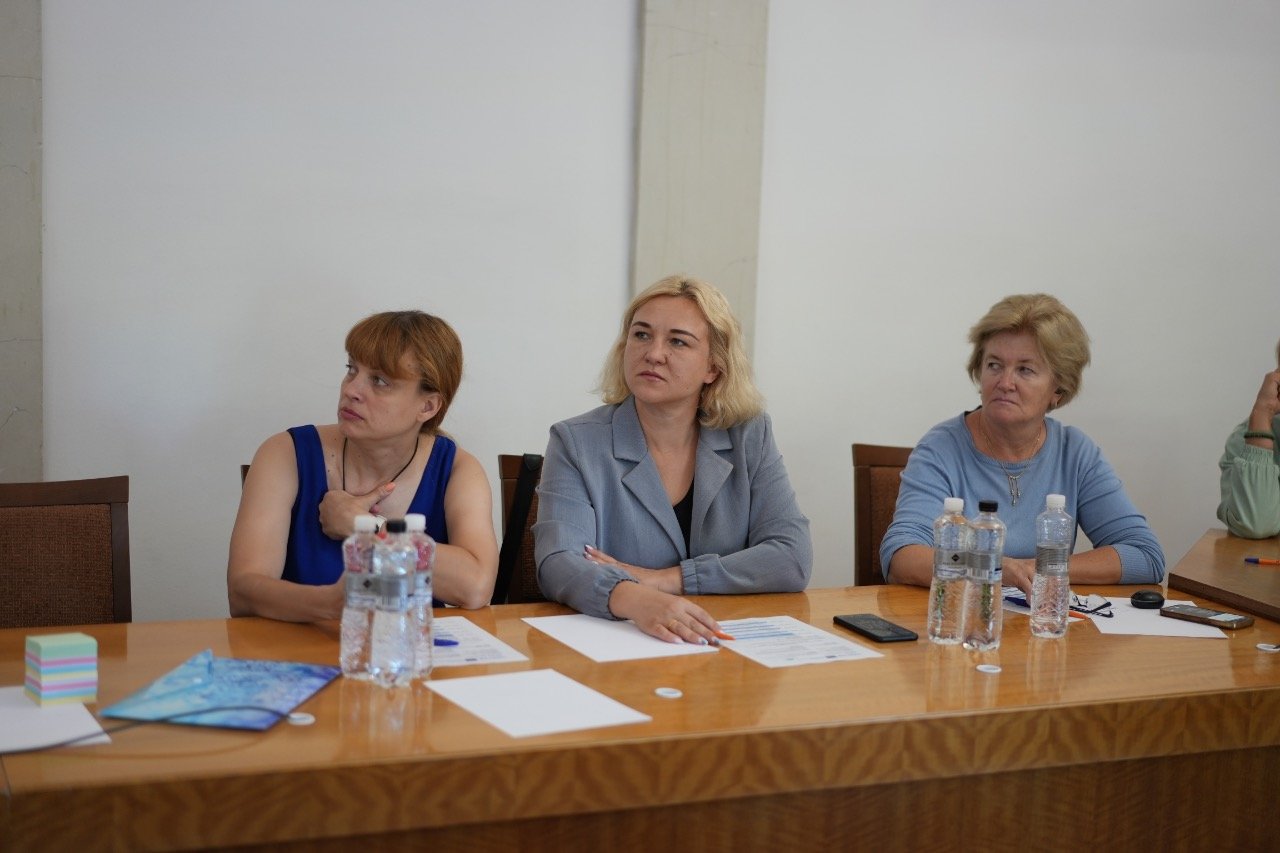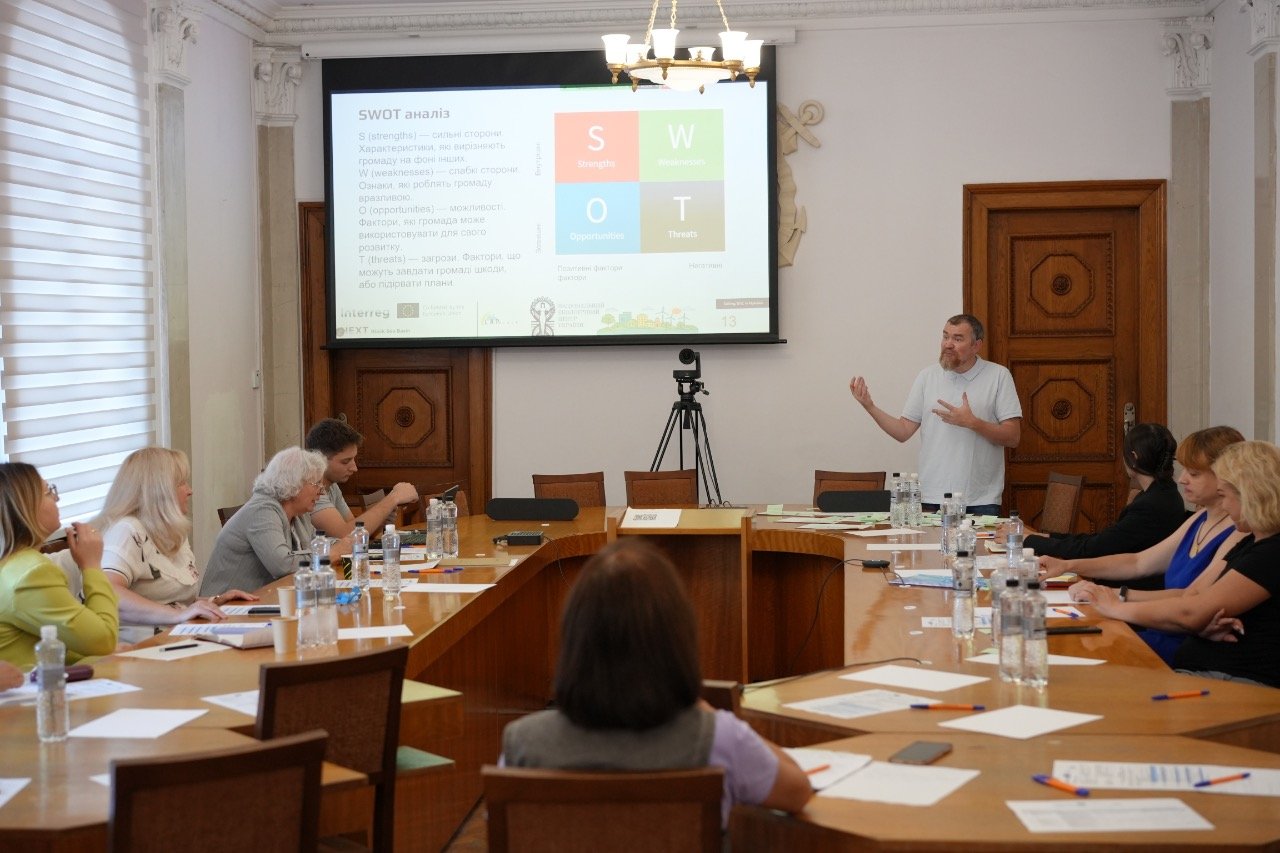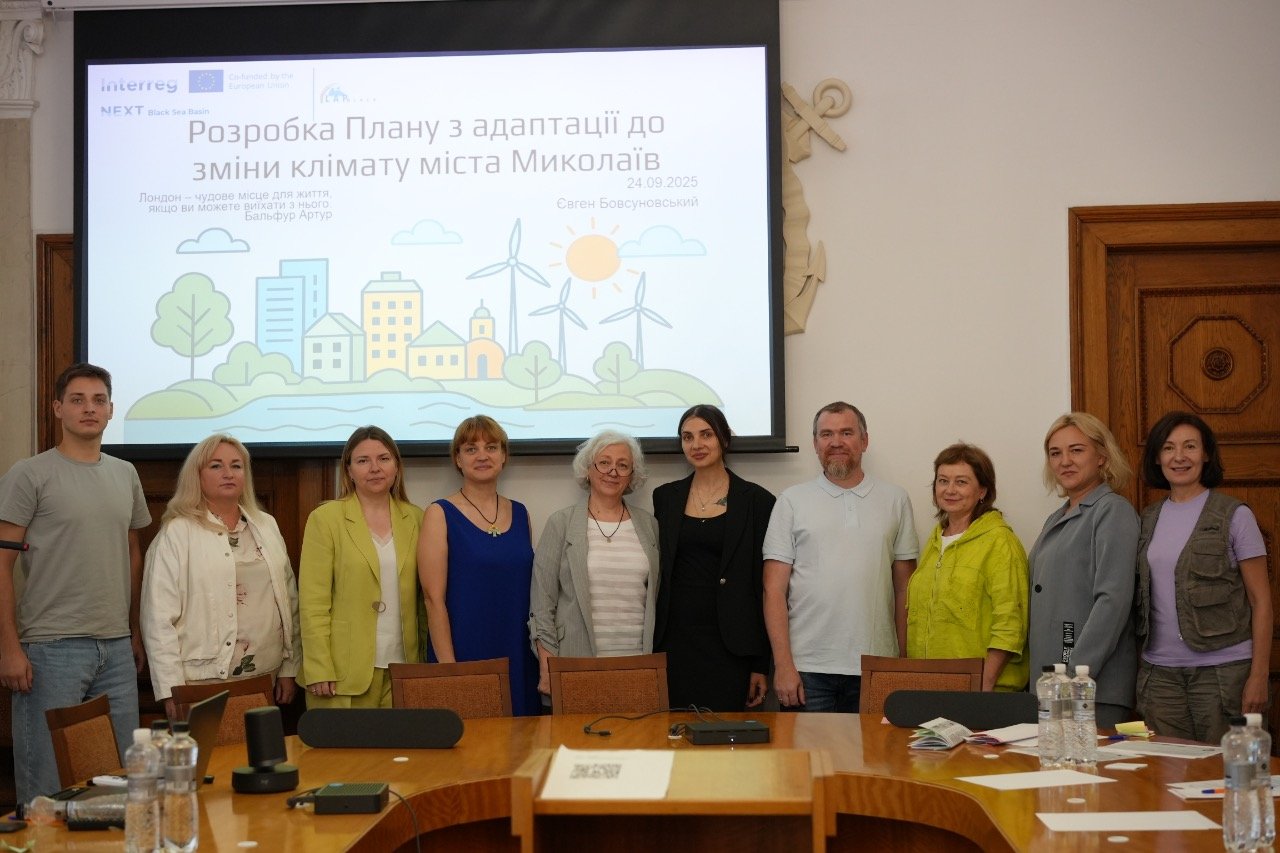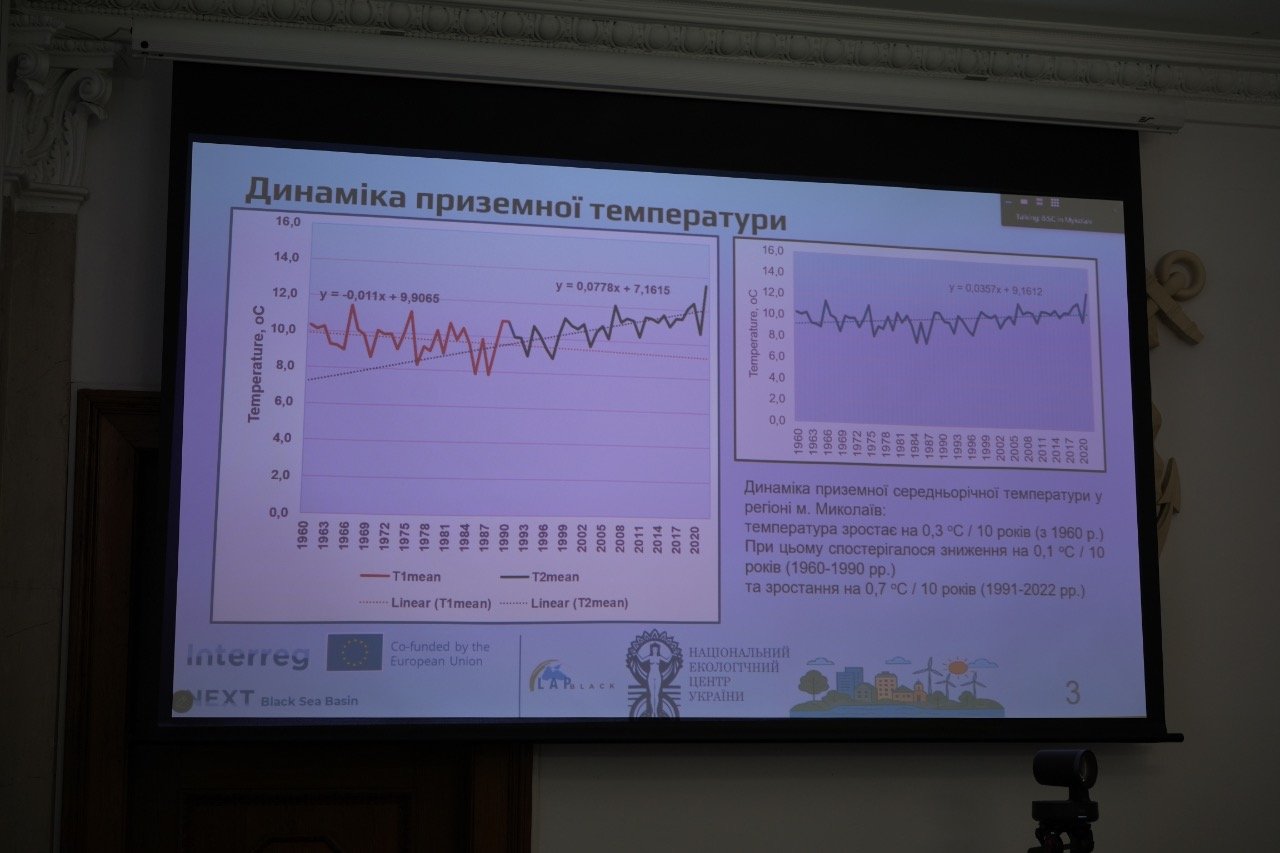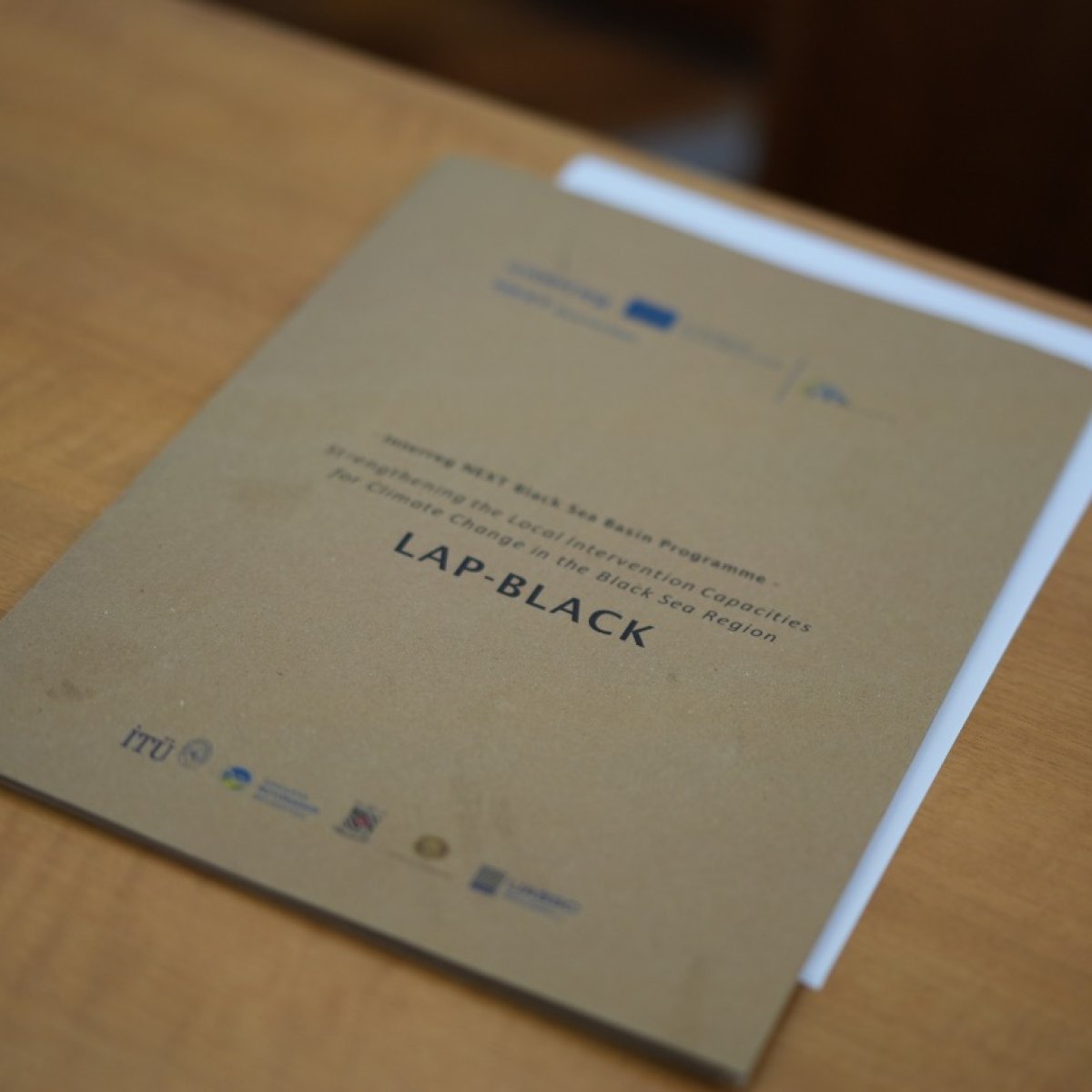On August 26, the third meeting of the working group on the adaptation plan development took place. The meeting brought together representatives of the city authorities, businesses, civil society organizations, and scientists. During the event, Olha Raku, Project and Program Coordinator of the Ukrainian Association of Business Support Centers, expressed gratitude to the experts for their active involvement.
The meeting was moderated by Yevhen Bovsunovskyi, PhD in Technical Sciences, Associate Professor, and Executive Director of NECU, as well as Associate Professor at the Department of Ecology of the State University “Kyiv Aviation Institute”. Presenting the climate forecast for Mykolaiv, he emphasized significant climate changes in the city: the total amount of precipitation continues to decrease, but its intensity is increasing, while the average air temperature is steadily rising.
“Compared to 1990, by 2100 the temperature will increase by 3.5°C. Is that a lot or a little? In fact, 3.5° might not sound like much — you might not even need to change your clothes. But it’s important to understand that this is the average temperature. It means that both winter and warm-season temperatures will rise,” he explained.
During the meeting, participants also discussed the long-term vision for Mykolaiv’s development and identified priority adaptation goals for various sectors of urban development.
A significant part of the discussion focused on a SWOT analysis of the city’s current state, which helps to identify strengths and weaknesses, assess opportunities, and anticipate potential risks.
The development of the adaptation plan includes not only analytical discussions but also active community involvement.
The next step will be a public survey, the results of which will help define priority adaptation measures and specific solutions for Mykolaiv’s safe and sustainable development.
As a reminder, the LAP-BLACK project aims to strengthen the capacity of coastal communities in the Black Sea region to respond to climate challenges. It is implemented under the Interreg NEXT Black Sea Basin 2021–2027 Programme with the financial support of the European Union.
